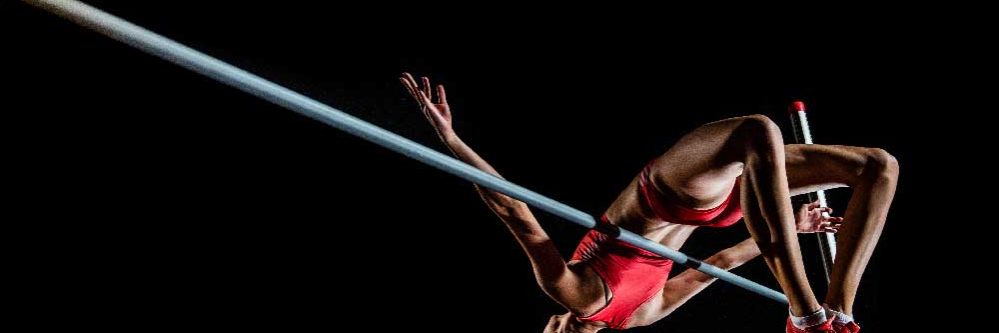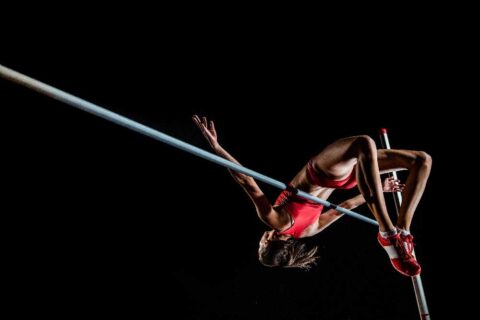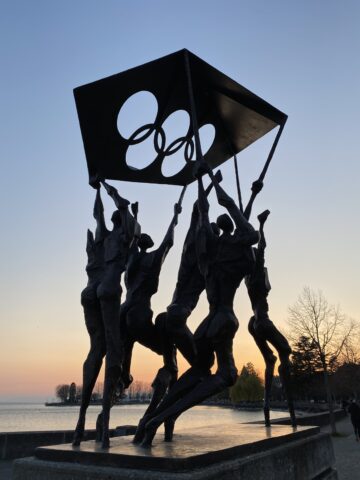International sports-related disputes from 2024 and what to expect in 2025
An overview of selected CAS, Swiss Federal Tribunal & other sports-related judgments published in 2024 & what to expect in 2025
By Dr. Despina Mavromati
2024 was a year rich in major sporting events, including the Summer Olympic and Paralympic Games in Paris (from 26 July 2024 to 11 August 2024, “Paris 2024 Olympics”). The Paris 2024 Olympics generated numerous interesting disputes that were decided by the CAS Ad Hoc Division present on-site, including the well-publicized Jordan Chiles dispute that is still pending before the Swiss Federal Tribunal (SFT) in Switzerland.
Paris 2024 Olympics
In a nutshell, the CAS ad hoc Panels dismissed four applications for being filed outside of the 10-day jurisdictional window in which the CAS ad hoc Division has jurisdiction over a dispute related to the Olympics. In four other cases, the CAS ad hoc Panels considered that the disputes fell within the “field of play doctrine”, which would only allow them to review the case for very limited grounds. In most cases, the Panels examined the proportionality, the reasonableness or the well-founded of the challenged decision, and upheld four applications after interpretation of the applicable regulations (you can also see my overview of all cases heard by the CAS ad hoc Division during the Paris 2024 Olympics here).
UEFA Euro 2024
Another major event in 2024 was the UEFA Euro 2024 in Germany (from 14 June to 14 July 2024), which engendered some disciplinary cases for the UEFA CEDB, the UEFA Appeals Body (and for the first time before the CAS ad hoc Division for UEFA Euro 2024). Apart from the sanction of the Turkish Player Merih Demiral for two matches, Spanish Players Rodrigo Hernández Cascante and Álvaro Morata were also suspended for the conduct that occurred during the public presentation of the 2024 UEFA European Championship trophy in Madrid on 15 July 2024, all of them for violating the basic rules of decent conduct and bringing the sport into disrepute. Moreover, Jude Bellingham was fined with EUR 30,000 and suspended for one match (on a probationary period of one year) for violating the basic rules of decent conduct under the UEFA Disciplinary Regulations.

Doping-related CAS awards published in 2024
Many of the mediatized CAS awards of 2024 related to doping (or re-ranking of results following disqualification).
In January 2024 the CAS issued its award in the well-known case of Kamila Valieva that started during the Winter Olympic Games Beijing 2022 (with an unsuccessful request for provisional suspension, see my note here) and continued with this appeal by RUSADA, the ISU and WADA, in February 2023. The Panel decided that Ms. Valieva could not meet her burden to establish that the origin of the banned substance found in her sample (Trimetazidine), concluding that violation of the anti-doping rule violation was intentional by the athlete and imposed a four-year sanction, with a backdating of the starting point of the ineligibility period to the date of the positive doping test. The Panel decided that her status as a “Protected Person” (a minor) under the current WADA Code could not justify a different treatment compared to other athletes and as such, the CAS Award was unsuccessfully challenged by the athlete before the SFT (see my note here).
In the aftermath of Kamila Valieva’s disqualification of results since December 2021, the results of the Team Event in figure skating at the Olympic Winter Games Beijing 2022 were also disqualified by an ISU decision in February 2024. This resulted, in July 2024, in an unsuccessful appeal that was filed by the ROC, the Figure Skating Federation of Russia and Russian skaters. At the same time, the Canadian team and NOC also sought to adjust the results in order to be ranked third and awarded the Bronze medal following the re-ranking by the ISU. This case was equally dismissedin August 2024, as the Panel held that it did not have the possibility under the ISU Rules to re-allocate points in favour of the Canadian team following the retroactive disqualification of Kamila Valieva.
In March 2024, the CAS issued the operative part of its decision (here is the full award) in the highly publicized case of Romanian tennis player Simona Halep, who was sanctioned for two separate charges related to anti-doping rule violations by the International Tennis Integrity Agency. While the ITF Independent Tribunal had initially imposed a four-year ineligibility period on the athlete, the CAS reduced the sanction in appeal to nine months. In the view of the Panel, the prohibited substance found in the athlete’s sample (Roxadustat) was the result of a contaminated supplement and such violation was unintentional, and she bore no significant fault or negligence. With respect to the second charge (violation of the Athlete’s Biological Passport), the Panel considered, based on its full power of review and the applicable standard of proof, that the ITIA could not establish an anti-doping rule violation.
In June 2024, the CAS confirmed the first-instance decisions rendered by the World Athletics Disciplinary Tribunal clearing athlete Norah Jeruto (from alleged abnormalities in her Athlete Biological Passport, ABP) and Nigerian athlete Tobi Amusan, finding that he had not violated the applicable anti-doping regulations for alleged whereabouts failures within a 12-month period.
Shortly afterwards, again in athletics, the CAS imposed a two-year period of ineligibility on Romanian athlete Florentina Iusco, reversing the decision of the Romanian Anti-Doping Agency that had initially imposed a reprimand on the athlete for the presence of specified substance furosemide in her sample. The CAS found that the athlete had failed to exercise her duty of care that would otherwise justify a lower sanction.
In July 2024, the CAS reversed the ITF Independent Tribunal decision on tennis player Mikael Ymer and imposed a18-month ineligibility period for three whereabouts failures within a 12-month period.
In August 2024, after a mediatized public hearing, the CAS imposed a four-year ban on Croatian football player Mario Vušković, increasing the initial two-year sanction imposed by the first-instance decision of the German Football Association for the presence of the prohibited, non-specified substance recombinant erythropoietin (rEPO) in an out-of-competition doping control.
In September 2024, Russian athlete Tatyana Tomashova was sanctioned by CAS (which acted as a first-instance tribunal in this case in lieu of the suspended Russian Athletics Federation) for anti-doping rule violations, following re-tests of various doping controls form 2012 that revealed the presence of prohibited anabolic steroids in her sample. To the extent that this was the athlete’s second violation, the Sole Arbitrator imposed a ten-year ineligibility periodstarting from the date of the issuance of the award.
In October 2024, the CAS issued an operative part of its award reducing the initial four-year sanction imposed on football player Paul Pogba to 18 months. The player was initially sanctioned for the presence of DHEA, a “non-endogenous testosterone metabolite” under the WADA Rules. According to the CAS press release, the Panel considered the player’s ingestion of DHEA as non-intentional due to a supplement prescribed by a medical doctor in Florida.
Membership and eligibility-related issues
Beyond the doping-related cases, the CAS has issued some interesting decisions in membership and eligibility-related issues.
In February 2024, the CAS issued its award in the appeal filed by the Russian Olympic Committee against the IOC Executive Board decision to suspend its membership, due to the ROC decision to include as members regional sports organisations that are currently under the authority of the NOC of Ukraine. In its award, the Panel concluded that the appealed decision did not apply double standards, nor did it breach the principles of legality, equality, predictability or proportionality. In particular, the Panel found the length of the suspension (“until further notice”) to be a less intrusive measure than until the dispute between Russia and Ukraine is terminated, as the suspension could be lifted prior to that, if this was justified by future circumstances.
In April 2024, the CAS dismissed the appeal filed by the International Boxing Association (IBA) against the IOC Executive Board Decision to withdraw its recognition due to the IBA’s failure to address concerns related to its governance and financial stability, keeping however
In June 2024, the CAS issued the award dismissing the request of the US transgender Swimmer Lia Thomas that was initiated in January 2024. Lia Thomas had challenged certain parts of the World Aquatics’ Policy on the Eligibility for the Men’s and Women’s Competition Categories of 24 March 2023 and its associated Operational Requirements, considering them as invalid and unlawful as they go against the Olympic Charter, World Aquatics Constitution, and Swiss law including the European Convention on Human Rights and the Convention on the Elimination of All Forms of Discrimination against Women. The Panel dismissed the athlete’s request not after review of the legality of the disputed regulations but after bifurcation of the procedure, accepting the preliminary objection by World Aquatics. The Panel concluded that the athlete lacked standing to challenge the regulations under Swiss Law, as she was not registered to take part in World Aquatics international competitions.
Alongside the aforementioned doping-related cases and the football-related awards issued in 2024 in labour law and transfer-related disputes (see also the review of football cases challenged before the SFT below), the CAS has also dealt with the UEFA Club Licensing & Financial Fairplay Regulations (UEFA CL & FFP). In September 2024, the CAS issued an award confirming the UEFA CFCB Decision to sanction FC Barcelona with a fine of EUR 500’000 for breach of its reporting requirements under the UEFA CL & FFP for the 2022/23 season. The club was found to have wrongly reported, in the financial year 2022, profits on disposal of intangible assets as “relevant income”.

Selected Swiss Federal Supreme Court Judgments from 2024
In 2024, the Swiss Federal Supreme Court (SFT) issued, once again, numerous judgments in motions against awards rendered by the Court of Arbitration for Sport (CAS). As occurs each year, most of the pleas involve grievances of due process and violation of the parties’ right to be heard, but also violation of public policy.
The SFT did not uphold any of the challenges in 2024, reiterating the high admissibility threshold, in particular related to the ‘effet de surprise’ (see my note on the former President of the European Weightlifting Federation Hasan Akkus in 4A_112/2024). Generally, the SFT confirmed its view that CAS Panels generally enjoy broad powers in the assessment of the evidence under Art. R44.1 (see my note on 4A_598/2023) and their power of review under Art. R57 CAS Code (see my note on 4A_232/2024). Moreover, pleas of appellatory nature are generally inadmissible (see e.g. my note onthe challenge of the International Boxing Association against the IOC Decision to withdraw its recognition, 4A_264/2024).Importantly, the parties have an obligation to raise any procedural irregularities / violations of the right to be heard in an explicit and unequivocal manner as soon as they arise, all the more after the 2021 modification of Art. 182 paragraph 2 of the Swiss Private International Law Act (see my note on 4A_598/2023). Interestingly, the SFT held that the right to be heard does not include as such a right to cross-examine a witness who filed written statements (see my note on 4A_600/2023).
Furthermore, the SFT re-confirmed its very strict view of violation of public policy but also the notion of ‘abuse of rights’ in employment claims based on mandatory labour law in football (see my note on 4A_134/2024). There is, in principle, no violation of public policy in case of the filing of the statement of appeal by email only (see my note on 4A_346/2024) or in case of delays to issue the CAS Award, to the extent that they can be justified by the complexity of the proceedings and the parties’ requests (see my note on a case involving a Russian wrester 4A_442/2023). CAS Panels generally enjoy wide discretion in assessing and determining the amount of a contractual penalty if the latter is found to be excessive (see my note on 4A_456/2023), but also in reviewing disciplinary sanctions in sports proceedings as found in the Hasan Akkus judgment (see my note on 4A_ 504/2023). What is more, requests for joinder and intervention under the CAS Code are not ‘essential rules’ falling within the scope of public policy (see e.g., my note on the request of a Peruvian football club to join disciplinary proceedings before the CAS in 4A_154/2023).
The SFT also confirmed its view that violations of the European Convention of Human Rights (the Convention) cannot be directly invoked pending the Caster Semenya case before the ECHR Grand Chamber (see my note on 4A_448/2023). Moreover, there is no public policy violation if a panel imposes doping sanction on a minor athlete, to the extent that a different treatment depending on age would endanger the fight against doping (see the analysis in 4A_564/2023 but also in the widely known Valieva judgment 4A_136/2024).
In terms of jurisdiction, the SFT emphasized that CAS jurisdiction and arbitrability cannot be invoked in bad faith, notably, if said jurisdiction was accepted in previous proceedings (see in particular the Valieva judgment 4A_136/2024and my note on the proceedings before the CAS Ad Hoc Division). Finally, the SFT clarified the interpretation principles of jurisdiction clauses in international football disputes, especially where FIFA’s regulations allow parties to opt out of FIFA and CAS jurisdiction for labor law issues (see my note on 4A_430/2023).

Regulatory developments and what to expect in 2025
In 2024, the most important case that shook the football regulatory world was the Decision issued by the Court of Justice of the European Union (ECJ) on the Diarra case. The judgment ruled on FIFA’s transfer rules founding some aspects related to financial compensation and sporting sanctions to be incompatible with EU law, in particular Articles 45 (freedom of movement) and 101 (competition law) of the Treaty on the Functioning of the European Union (TFEU). According to the ECJ, rules on joint liability of players and new clubs for compensation along with automatic sporting sanctions are disproportionate and have a dissuading effect on clubs from recruiting players across Member States, restricting cross-border competition. Even though the protection of interclub football competitions is a legitimate objective and notwithstanding the specificities of football, the mechanisms used should be proportionate and with respect to the EU law principles.
The case will further unfold in 2025, as FIFA swiftly reacted to the ECJ judgment by opening “global dialogue on article 17 of the FIFA Regulations on the Status and Transfer of Players” with a view to amending Article 17 FIFA RSTP; most importantly, through an official letter sent by the FIFA Secretary General, FIFA informed all national associations that it would suspend, with immediate effect, all pending disciplinary cases against players, coaches and clubs related to the enforcement of financial entitlements based, in particular, on Article 17 FIFA RSTP. This suspension at the FIFA level will likely impact proceedings related to the aforementioned issues that are currently pending before the CAS in appeal against decisions already rendered by the FIFA Tribunal and the FIFA Disciplinary Committee. On 22 December 2024, FIFA adopted an interim regulatory framework (along with detailed explanatory notes), pending the conclusion of the new RSTP.
In 2025, the Grand Chamber of the European Court of Human Rights (ECHR) is expected to issue its final judgment following the hearing in the case of Semenya v. Switzerland that took place in Strasbourg on 15 May 2024. South African Athlete Caster Semenya had unsuccessfully challenged (before CAS and the SFT) the World Athletics Eligibility Regulations that required her to decrease her natural testosterone levels in order to be eligible to participate in international competitions in the female category. However, in 2023 the ECHR held, by majority, that there had been a violation of Articles 14, 8 and 13 of the Convention and the case was referred to the ECHR Grand Chamber, upon request of the Swiss Government and with the participation of several third parties.
In 2025, the CAS will also issue its decision in the appeal filed by the ITIA against the ITIA Independent Tribunal first-instance decision to clear Italian tennis player Jannik Sinner following the presence of prohibited and non-specified substance steroid Clostebol in his sample. The decision under appeal before the CAS found that the prohibited substance had been found by way of cross-contamination during a physiotherapy session and that the player had exercised “utmost caution” to avoid a positive test result.
Finally, the SFT is also expected to issue its decision in the requests for revision / to set aside the CAS award issued by the CAS ad hoc Division in the cases of US gymnast Jordan Chiles and Romanian gymnast Sabrina Maneca-Voinea. Ms. Chiles (who was an interested party and not a respondent in these proceedings) was initially awarded the Olympic bronze medal in the women’s gymnastics floor exercise final at the Paris 2024 Olympics after her coach’s inquiry led to an increase of her final score. However, as seen above, the CAS ad hoc Panel determined that the inquiry was submitted four seconds after the one-minute time limit, rendering it invalid, and reinstated the results. In her application, Jordan Chiles asserted a violation of her right to be heard due to the Panel’s disregard of evidence that the inquiry was made within the applicable time limit. Jordan Chiles also contends that the Panel was improperly constituted because the Panel Chair had a conflict of interest due to his ongoing legal relationship with Romania, which was not disclosed to Ms. Chiles during the entire CAS proceedings. The case is expected to rule on a number of interesting procedural and substantive questions, including the obligation of interested parties to be informed on disclosures regarding conflicts of interests in the same way as ‘formal’ parties.





